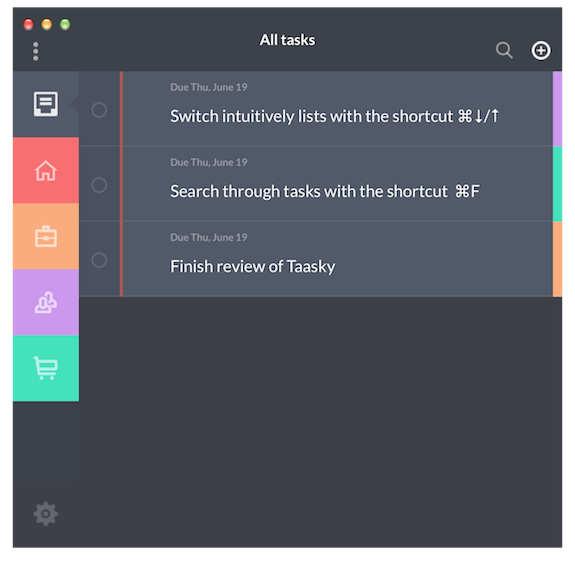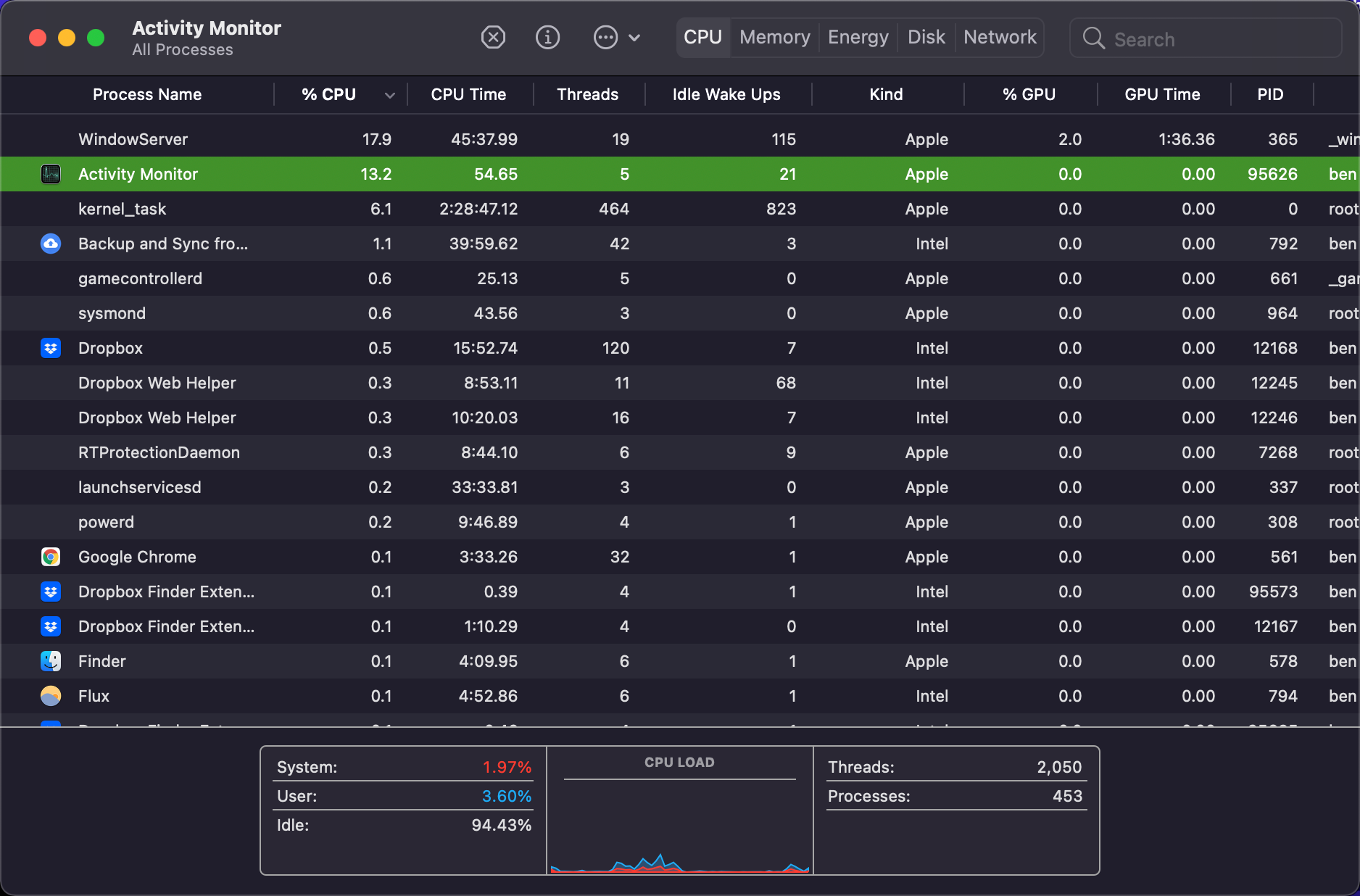

It shows which applications are doing the heaviest work. In the "CPU" tab which is the first one opened by default, you can see information on CPU usage.įor example, here you can see how the activities are affecting the processor's performance and how many processor resources are being used. There are five tabs available at the top of the window: Once the Activity Monitor Window is open, you can take a deeper look into the current processes that are running on your computer.
#HOW TO ACCESS MAC TASK MANAGER HOW TO#
How to Use the Activity Monitor An Overview Of The Five Tabs in Activity Monitor Now the application is pinned in your Dock. From there, once the dropdown menu appears, select Option and then Keep in Dock.

Once you've completed those steps and opened the Activity Monitor, you can optionally keep it in the Dock for easy and fast access in the future.Ĭlick and hold down on the application's icon. Hit Return and double click on the first option that appears. Start enetering the input for what you're looking for – in this case type the words Activity Monitor and it should come up. 💡 Another way to access Spotlight is by using the Command Spacebar keyboard shortcut.

To access the Spotlight button you can just click on it: The Spotlight button is located in the menu bar at the top right corner of your Mac's screen and looks like a magnifying glass. The easiest and most straightforward way to open the Activity Monitor is with the Spotlight button. So, to dig a bit deeper and gather more information on how the program that has frozen affects your computer, it's helpful to launch the Activity Monitor.įrom there you can close or force quit programs, background processes which are not open and visible by default, or apps that have frozen up and are unresponsive and hanging. It locates and shows all the processes currently running and how different applications affect the computer's performance. It shares a lot of similarities with the Window's counterpart. The Activity Monitor is the equivalent system for measuring your computer's activity on a Mac Operating System - it is just under a different name.
#HOW TO ACCESS MAC TASK MANAGER WINDOWS#
If you were a Windows user in the past, you may be familiar with the Task Manager for troubleshooting problems. It's useful for just force-quitting an application. It's a handy and quick solution for closing a program that is not working and is unable to stop properly.īut this method doesn't give much information about what could be causing the problem. The application you selected will be closed and terminated immediately. A dropdown menu will appear and from there select "Force Quit". 💡 Another way to access this window is by selecting the Apple icon at the top left corner of your screen by clicking on it. This window shows a list of all the applications that are currently open on your computer.Īs the helpful instructions indicate, select the application that has frozen and is no longer responsive. This will launch the Force Quit Applications Manager window: Hold down those three keys at the same time. The first action to take when an application or program you're using freezes and is no longer responsive is to use the following keyboard shortcut: Command Option Esc. You'll see how using it gives you insight to help diagnose and troubleshoot problems. In this article you'll learn about the essential Task Manager tool on MacOS. The computer's fan then starts to get louder and louder and that dreaded – but colorful – spinning wheel may even make an appearance.įortunately, there are certain steps you can take to fix different problems, get to the root of them, and see what caused them in the first place. The computer starts to significanlty slow down and an app we are using might freeze for a while. Having problems with our computers is never fun.Īnd what's often worse than the problems themselves is that they seem to occur when we're in the middle of an important task that needs to get done.


 0 kommentar(er)
0 kommentar(er)
